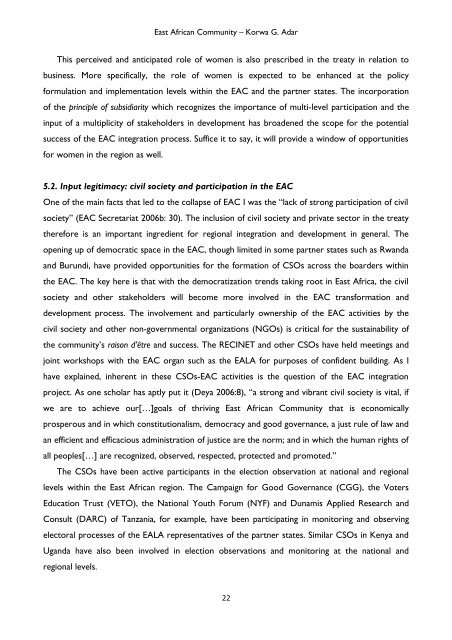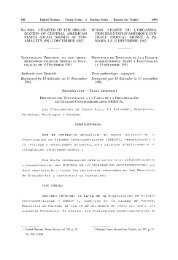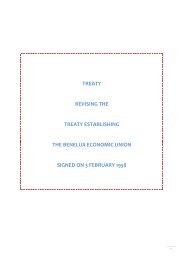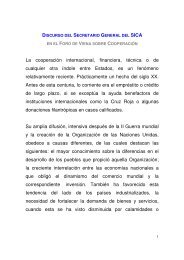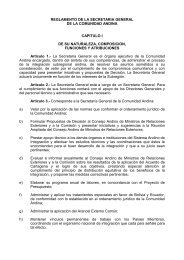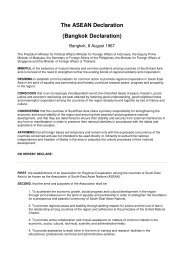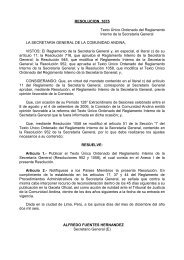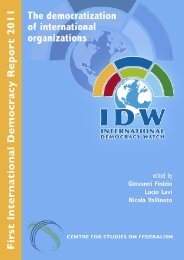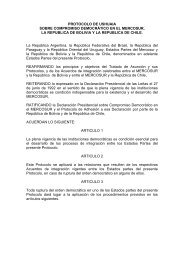Korwa G. Adar - International Democracy Watch
Korwa G. Adar - International Democracy Watch
Korwa G. Adar - International Democracy Watch
You also want an ePaper? Increase the reach of your titles
YUMPU automatically turns print PDFs into web optimized ePapers that Google loves.
East African Community – <strong>Korwa</strong> G. <strong>Adar</strong>This perceived and anticipated role of women is also prescribed in the treaty in relation tobusiness. More specifically, the role of women is expected to be enhanced at the policyformulation and implementation levels within the EAC and the partner states. The incorporationof the principle of subsidiarity which recognizes the importance of multi-level participation and theinput of a multiplicity of stakeholders in development has broadened the scope for the potentialsuccess of the EAC integration process. Suffice it to say, it will provide a window of opportunitiesfor women in the region as well.5.2. Input legitimacy: civil society and participation in the EACOne of the main facts that led to the collapse of EAC I was the “lack of strong participation of civilsociety” (EAC Secretariat 2006b: 30). The inclusion of civil society and private sector in the treatytherefore is an important ingredient for regional integration and development in general. Theopening up of democratic space in the EAC, though limited in some partner states such as Rwandaand Burundi, have provided opportunities for the formation of CSOs across the boarders withinthe EAC. The key here is that with the democratization trends taking root in East Africa, the civilsociety and other stakeholders will become more involved in the EAC transformation anddevelopment process. The involvement and particularly ownership of the EAC activities by thecivil society and other non-governmental organizations (NGOs) is critical for the sustainability ofthe community’s raison d’être and success. The RECINET and other CSOs have held meetings andjoint workshops with the EAC organ such as the EALA for purposes of confident building. As Ihave explained, inherent in these CSOs-EAC activities is the question of the EAC integrationproject. As one scholar has aptly put it (Deya 2006:8), “a strong and vibrant civil society is vital, ifwe are to achieve our[…]goals of thriving East African Community that is economicallyprosperous and in which constitutionalism, democracy and good governance, a just rule of law andan efficient and efficacious administration of justice are the norm; and in which the human rights ofall peoples[…] are recognized, observed, respected, protected and promoted.”The CSOs have been active participants in the election observation at national and regionallevels within the East African region. The Campaign for Good Governance (CGG), the VotersEducation Trust (VETO), the National Youth Forum (NYF) and Dunamis Applied Research andConsult (DARC) of Tanzania, for example, have been participating in monitoring and observingelectoral processes of the EALA representatives of the partner states. Similar CSOs in Kenya andUganda have also been involved in election observations and monitoring at the national andregional levels.22


